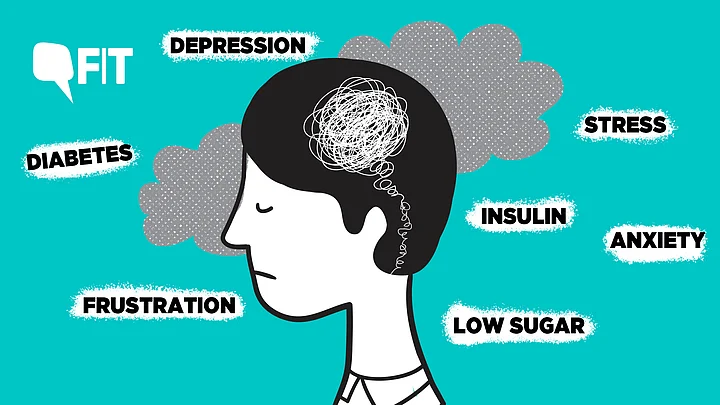“I was 25 and I never even expected that I was going to be a diabetic…”
“Do I really have to take these injections forever?”
“Am I going to die early?”
Diabetes is an invisible condition, and in its invisibility, we tend to miss how it truly changes a person’s life. We fail to go beyond the ‘sugar level’ and ‘insulin’ discussions, putting the very real mental consequences of the condition in the far shadows.
As something that lives with you, demands from you, and surprises you every single day, diabetes is bound to hamper a person’s mental state. In a lot of the patients, it causes feelings of helplessness, frustration, anger, and even resentment towards their own selves.
In this podcast, FIT brings to you stories of five such individuals. From 44-year-old Arvind Ramaswamy to 16-year-old Riya Prasad, diabetes has changed their lives in more ways than one. Some quit their jobs, some went through depression, and others are still figuring out ways to cope with it.
“Diabetes Is a Life Sentence”
A diabetes diagnosis can totally disrupt the way you have been living your life. Monitoring your blood sugar in regular intervals, taking insulin injections, keeping note of everything you eat — and even after all this, still perhaps failing to achieve the ‘perfect’ numbers.
This is what Mansi Gautam, a PhD student, says,
For Jyotsana Rangeen, her diagnosis was ‘catastrophic’ — forcing her to leave her job. Negative thoughts clouded her mind, and cases of type 1 diabetics dying only made her fears more real.
While type 1 is an autoimmune condition which requires insulin doses, type 2 is more common.
Arvind got diagnosed with it when he was 25. His immediate reaction was denial. He couldn’t believe it. And then, it suddenly dawned on him that his life would change forever. He even considered the possibility of having to live alone all his life. “Who will marry me now?”
Today, he is happily married. His wife is a type 1 diabetic.
Anxiety Also Makes Diabetes Worse
While diabetes hugely impacts mental health, it also works the other way round. Stress and anxiety influence blood sugar, often worsening diabetes. In that way, it’s often an endless loop.
In fact, the symptoms of anxiety overlap with that of low blood pressure. For Satyam, who has anxiety and is also a diabetic, this caused confusion.
So yes, diabetes can be frightening. But people living with it are learning how to find peace, calm and happiness. They are all coping, growing, and teaching some valuable lessons to all of us. Like 16-year-old Riya puts it, “I am proving people that I am just like them, with just one addition to my life.”
Also Read: Did My Accident Cause The Diabetes?
(At The Quint, we question everything. Play an active role in shaping our journalism by becoming a member today.)
